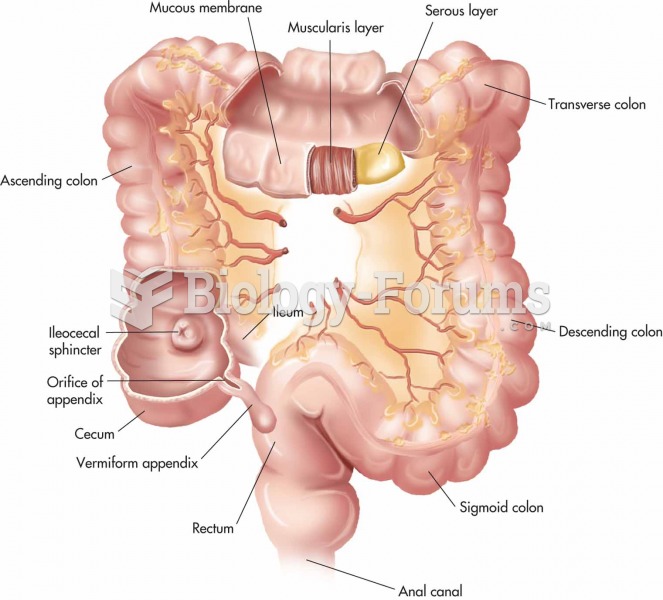|
|
|
Certain rare plants containing cyanide include apricot pits and a type of potato called cassava. Fortunately, only chronic or massive ingestion of any of these plants can lead to serious poisoning.
In most climates, 8 to 10 glasses of water per day is recommended for adults. The best indicator for adequate fluid intake is frequent, clear urination.
Allergies play a major part in the health of children. The most prevalent childhood allergies are milk, egg, soy, wheat, peanuts, tree nuts, and seafood.
The largest baby ever born weighed more than 23 pounds but died just 11 hours after his birth in 1879. The largest surviving baby was born in October 2009 in Sumatra, Indonesia, and weighed an astounding 19.2 pounds at birth.
Today, nearly 8 out of 10 pregnant women living with HIV (about 1.1 million), receive antiretrovirals.
 Cardiac catheterization. Insertion of a tube called a catheter through a blood vessel. In this examp
Cardiac catheterization. Insertion of a tube called a catheter through a blood vessel. In this examp
 Middle adulthood can bring large-scale changes in lifestyle and interests, as illustrated by this ph
Middle adulthood can bring large-scale changes in lifestyle and interests, as illustrated by this ph





